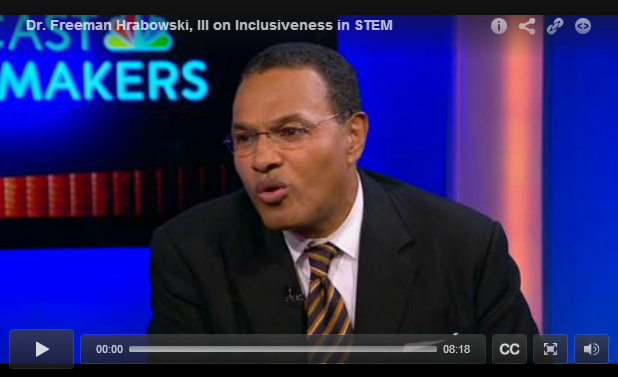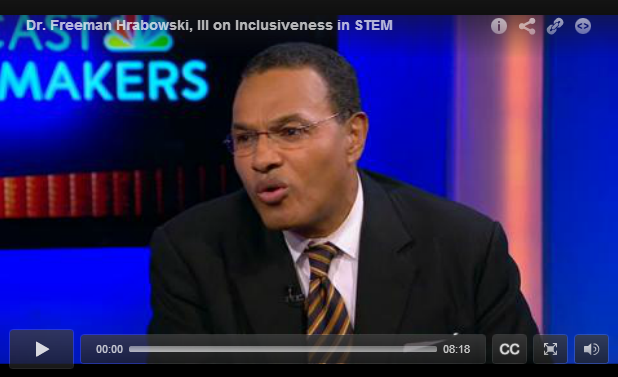In a recent interview with Comcast Newsmakers, President Freeman Hrabowski acknowledged that, while the number of jobs in STEM-related fields is growing, minority representation within these fields still lags.
“There are far too few Americans, in general, who love math or who are in STEM fields,” said Dr. Hrabowski, when asked about his successful career as an African-American with a math and science background. According to a 2010 study by the National Academies Committee chaired by Dr. Hrabowski, only 5 percent of 24 year-olds of all races hold STEM degrees—and only 2-3 percent of minorities.
During the interview, Dr. Hrabowski pointed to the need for students to understand that, despite racial and ethnic disparities, success in STEM fields requires a well-rounded experience that extends beyond technical training.
“We want young people to understand that the more they do—and the more they take advantage of the opportunities in learning to read and think critically and solve problems—the better they can be in STEM,” said Hrabowski. “I cannot emphasize enough the importance of reading and thinking skills and giving children a chance to solve problems and talk about problem-solving of all types.”
Some tactics that bridge this gap, says Dr. Hrabowski, include working with children at an early age and using real-world problems to teach the value of math, science, reading, and thinking skills.
Dr. Hrabowski also identified competitiveness as a principle concern hindering growth in STEM. “If you think about how we solve problems in our country [and] in the world, people work in groups,” he said. Dr. Hrabowski also emphasized the notion of community as a core value at UMBC and how integral it is to learning and growing.
Above all, Dr. Hrabowski believes we must create a nurturing environment that teaches others to believe in themselves: “There’s nothing more important than a sense of self.”
Tags: Hrabowski


